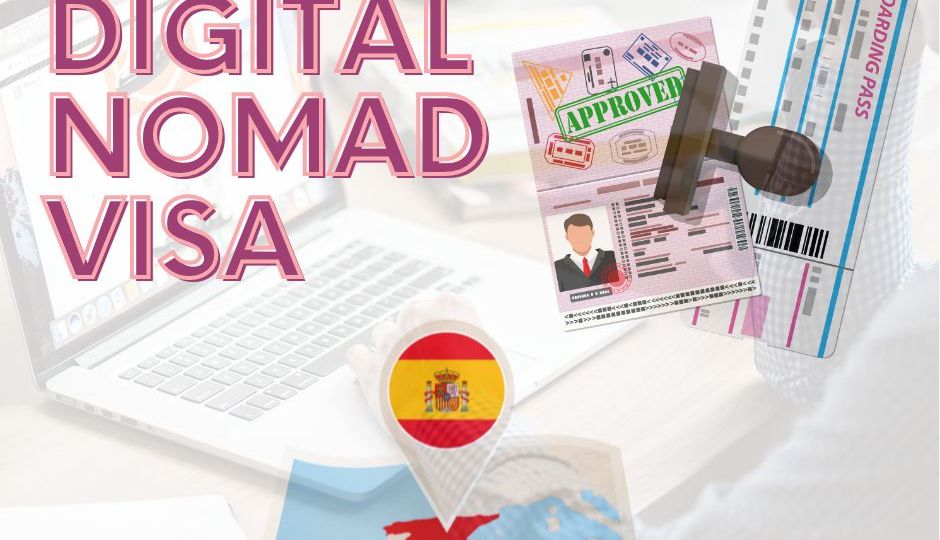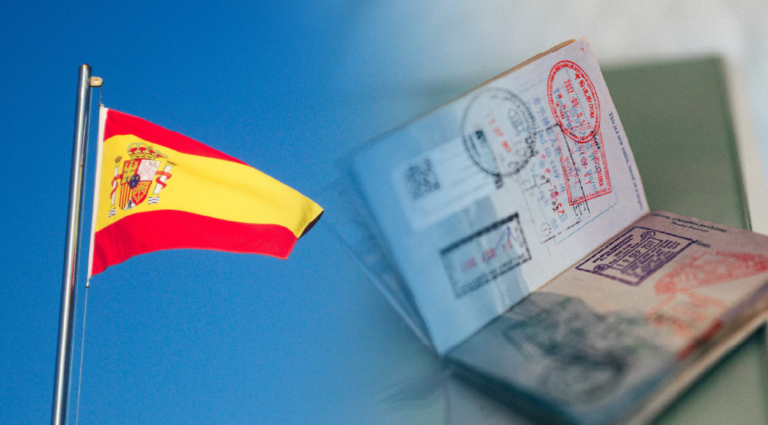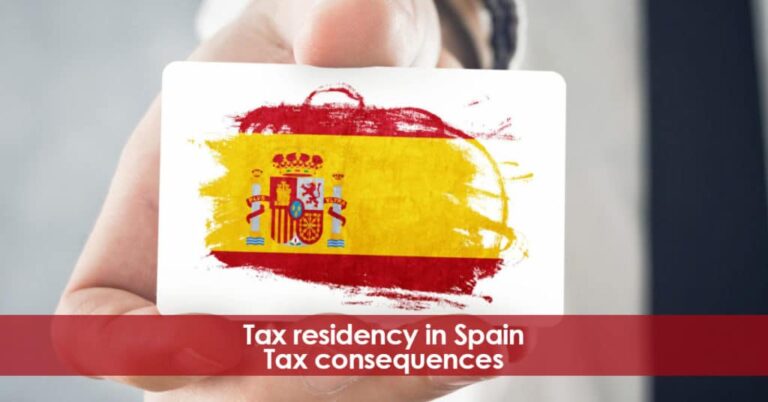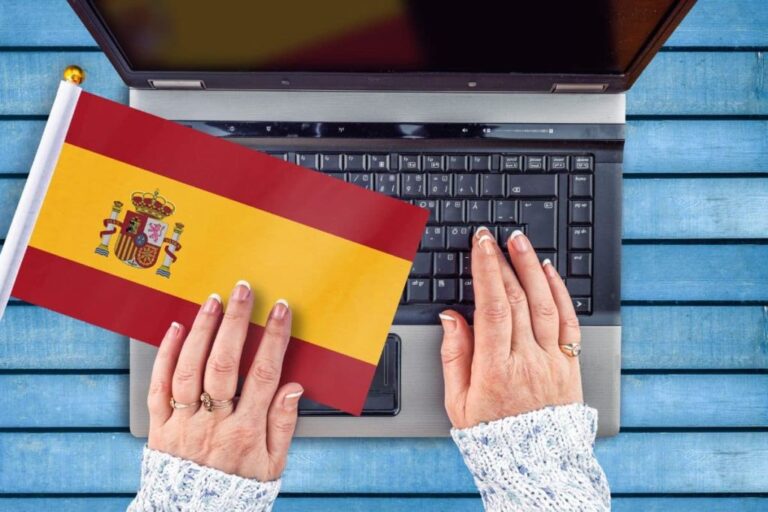How Setting up a Business as a Digital Nomad in Spain Can Turn Your Remote Work Dream Into Reality?
Setting up a business as a digital nomad in Spain can be a thrilling opportunity to live and work in one of the most scenic and culturally rich countries in Europe. With the Spanish government now encouraging digital nomads to bring their businesses here, this option is more accessible than ever. Whether you’re a freelancer or an entrepreneur, you can make Spain your base, taking advantage of the new digital nomad visa offered by Marfour International Law Firm to stay longer and work legally. Here’s everything you need to know about launching your business, from the paperwork to the lifestyle benefits.
What Are the Key Steps for Spain Setting up a business for Nomads?
Setting up a business in Spain can feel like a big task, especially for digital nomads looking to balance work and travel. With its vibrant culture, stunning landscapes, and a growing economy, Spain is an appealing destination. If you’re ready to dive into the Spanish entrepreneurial scene, here are the essential steps to get your business off the ground.

Research the Market
Before you get too far into the business setup process, it’s crucial to do your homework. Spend some time learning about the Spanish market, its trends, and potential competition. Think about what makes your business unique and how it can fill a gap in the market. A solid understanding of local consumer behavior will help tailor your offerings and marketing strategies.
Choose the Right Business Structure
Deciding on the right business structure is a fundamental step. In Spain, common options include sole proprietorships (autónomos), limited liability companies (sociedades limitadas or SL), and public limited companies (sociedades anónimas or SA). Each has its own implications for taxes, liability, and paperwork. For instance, a sole proprietorship is simpler and has fewer regulations but offers less protection against personal liability. It might be worth consulting a professional, like Marfour International Law Firm, to help you choose the best fit for your needs.
Register Your Business
Once you’ve chosen a structure, it’s time to get your business registered. This typically involves obtaining a tax identification number (NIF), registering with the local commercial registry, and applying for any necessary licenses or permits. Don’t skip this step—operating without the proper registration can lead to fines or legal troubles down the line. The paperwork might seem overwhelming, but take it step by step, and you’ll get through it.
Open a Business Bank Account
Having a dedicated business bank account is essential for keeping your personal and business finances separate. This not only makes bookkeeping easier but also helps you maintain professionalism. When selecting a bank, consider factors such as fees, online banking options, and customer service. Many banks in Spain offer accounts specifically designed for entrepreneurs, so look into those options to find the best fit for your business.
Understand Tax Obligations
Taxes can be a headache for many business owners, especially in a new country. In Spain, businesses must comply with several tax obligations, including corporate tax, VAT, and income tax for autónomos. It’s crucial to familiarize yourself with these requirements to avoid surprises later on. Consulting with a tax advisor or a legal firm like Marfour International Law Firm can provide clarity and ensure you’re on the right track.
Hire Employees Wisely
If you plan to hire staff, be sure to familiarize yourself with Spain’s labor laws. This includes contracts, working hours, and employee rights. Spain has strict labor regulations, so it’s vital to handle this aspect properly. A well-structured hiring process can help you find the right talent while staying compliant with local laws.
Get Insured
Protecting your business with insurance is a smart move. Depending on your business type, you may need various forms of coverage, such as liability insurance, professional indemnity insurance, or property insurance. This step is often overlooked, but having the right insurance can save you from significant financial losses in the event of an unexpected incident.
Build Your Network
As a nomad, your network is invaluable. Building connections in Spain can open doors to new opportunities and collaborations. Attend local networking events, join online forums, or engage with entrepreneurial communities on social media. Meeting like-minded individuals can provide support, guidance, and potential partnerships that enrich your business experience.
Stay Compliant and Adapt
Once your business is up and running, staying compliant with local regulations is crucial. Keep track of deadlines for taxes, renewals, and permits to avoid fines. Additionally, as a digital nomad, you might find that your circumstances change. Be prepared to adapt your business model to fit your lifestyle and the market’s needs.
Setting up a business in Spain can be an exciting adventure filled with challenges and rewards. By following these key steps, you’ll be well on your way to establishing a successful venture while enjoying the beauty and culture of Spain. Whether you’re a solo entrepreneur or planning to expand with a team, taking the time to plan and prepare will pay off in the long run. If you need assistance, consider reaching out to Marfour International Law Firm for expert guidance tailored to your business needs. Happy entrepreneurial journey!
How Do You Register Your Business in Spain?
Setting up a business in Spain is an exciting venture, but it can also feel a bit daunting, especially when it comes to the registration process. Fortunately, breaking it down into manageable steps can simplify the journey. Here’s a guide to help you register your business in Spain.
Determine Your Business Structure
Before you jump into the registration process, it’s important to decide on your business structure. In Spain, common options include:
- Sole Proprietorship (Autónomo): Ideal for freelancers and small businesses, this structure is easier to set up and has fewer regulatory requirements.
- Limited Liability Company (Sociedad Limitada, SL): This is a popular choice for small to medium-sized enterprises, providing limited liability protection for owners.
- Public Limited Company (Sociedad Anónima, SA): Suitable for larger businesses, this structure requires a minimum share capital and has stricter regulations.
Understanding the differences between these structures will help you choose the one that best fits your business goals.
Obtain a Tax Identification Number (NIF)
Every business in Spain needs a tax identification number, known as the Número de Identificación Fiscal (NIF). This number is essential for tax purposes and must be obtained before you can register your business. You can apply for the NIF at your local tax office (Agencia Tributaria) or online through their website. If you’re a foreigner, you’ll need to provide additional documentation, such as your passport or residence permit.
Register with the Commercial Registry
After obtaining your NIF, the next step is to register your business with the local Commercial Registry (Registro Mercantil). This process includes submitting a range of documents, such as:
- The company’s bylaws or operating agreement
- Proof of the company’s registered address
- A certificate of the company name (you’ll need to reserve your business name in advance)
- Documentation that verifies the identity of the business owners
This step formalizes your business and makes it a legal entity. The registration process can take a few days to several weeks, so be prepared for some waiting time.
Open a Business Bank Account
Once your business is registered, it’s time to open a dedicated business bank account. This account is crucial for separating your personal and business finances, which can simplify bookkeeping and tax reporting. Look for banks that offer accounts tailored for entrepreneurs, as they may have lower fees and additional services.
Register for Social Security
If you plan to hire employees or if you’re setting up as a sole proprietor, you’ll need to register with the Spanish Social Security system (Seguridad Social). This registration allows you and your employees to access various social security benefits, including healthcare and pensions. You can register online or in person at your local Social Security office.
Obtain Necessary Licenses and Permits
Depending on your business activities, you may need specific licenses or permits to operate legally in Spain. For instance, if you’re opening a restaurant, you’ll need a health and safety permit. Research the requirements for your specific industry and make sure to obtain any necessary permits before starting operations.
Register for Taxes
After completing the above steps, you’ll need to register your business for tax purposes. This involves completing and submitting the appropriate forms to the tax office. Depending on your business structure, you may need to register for VAT (IVA) and other relevant taxes. It’s advisable to consult a tax advisor or legal firm, like Marfour International Law Firm, to ensure you’re meeting all obligations.
Keep Records and Stay Compliant
Once your business is registered, staying compliant with local laws and regulations is essential. This includes maintaining proper accounting records, filing annual tax returns, and renewing any necessary permits. Establishing a good record-keeping system from the start can save you headaches down the road.
Registering your business in Spain might seem overwhelming at first, but by following these steps, you can navigate the process with greater ease. Taking the time to understand the requirements and ensure everything is in order will set you up for success. If you have questions or need assistance, don’t hesitate to reach out to experts like Marfour International Law Firm, who can guide you through the registration process and help you get started on the right foot. Good luck on your entrepreneurial journey in Spain!
What Are the Business Costs for Digital Nomads in Spain?
Spain is a top destination for digital nomads, offering a blend of stunning landscapes, rich culture, and a favorable lifestyle. However, moving to a new country for work means considering various business costs. Whether you’re planning to be in bustling cities like Barcelona or Madrid, or looking for the tranquility of smaller towns, it’s essential to know what expenses to expect. Let’s dive into the key business costs that digital nomads might encounter while working in Spain.

Office Space and Coworking Costs
One of the first things to think about as a digital nomad is where you’ll work. Many choose coworking spaces because they offer a flexible and professional environment. In major cities, prices for coworking memberships can range from €150 to €400 per month. This fee often includes high-speed internet, office supplies, and access to meeting rooms, which can be a lifesaver for virtual meetings. If you’re in a more remote area, local cafes can also serve as makeshift offices, but consider their Wi-Fi reliability and how long you can stay without making a purchase.
Internet and Mobile Services
Staying connected is crucial, especially when your work relies on reliable internet. In Spain, mobile plans vary widely. A typical mobile plan with data can cost between €15 and €50 monthly. If you’re in a coworking space, you’ll likely have solid Wi-Fi included, but having a backup on your phone can prevent any last-minute scrambles if the connection goes down.
Additionally, home internet service usually starts around €30 per month for decent speeds, which is essential if you plan on renting a place long-term. Think of it as the lifeline that keeps your business running smoothly while enjoying the Spanish lifestyle.
Health Insurance Expenses
As a digital nomad, having health insurance is not just a good idea; it’s a necessity. Spain has an excellent healthcare system, but if you’re not a resident, you’ll need private health insurance. The costs can range from €50 to €200 monthly, depending on the coverage you choose. It’s wise to shop around for plans that cater specifically to expats, ensuring you have access to a wide network of healthcare providers. This is not only a smart financial decision but also provides peace of mind, allowing you to focus on your work and adventures without worrying about health issues.
Taxes and Business Registration
If you plan to stay in Spain for an extended period or want to operate a business there, you must consider the tax implications. As a freelancer or digital entrepreneur, registering as self-employed may be necessary, which involves a one-time registration fee and ongoing costs related to tax filings.
Expect to pay around €300 to €600 annually for accounting services to help you stay compliant with Spanish tax laws. It’s important to consult professionals like Marfour International Law Firm, as they can provide guidance tailored to your specific situation, helping you navigate the complexities of the Spanish tax system.
Living Costs and Lifestyle Expenses
While not strictly a business cost, living expenses can significantly impact your budget as a digital nomad. The cost of living varies from city to city. In major urban areas, rent can take a big chunk out of your budget. For example, renting a one-bedroom apartment in Barcelona or Madrid can range from €800 to €1,500 monthly. In smaller cities or towns, you might find similar accommodations for €500 to €800.
Food, transport, and entertainment also contribute to your monthly expenses. Dining out can be relatively inexpensive, especially if you stick to local eateries, with meals costing between €10 and €25. However, indulging in the finer dining options can increase your budget significantly.
Embarking on a digital nomad journey in Spain is exciting, but being financially prepared is key. From coworking spaces to health insurance, the costs can add up. By understanding these expenses and planning accordingly, you can enjoy all that Spain has to offer without financial stress.
And remember, having legal support from experts like Marfour International Law Firm can help you make informed decisions about taxes and business registration, ensuring that you can focus on your work and enjoy your life in this beautiful country. So, are you ready to pack your bags and start your adventure in Spain?
Why Is Spain a Great Choice for Nomad Entrepreneurs?
Spain has become a hotspot for digital nomads and entrepreneurs, drawing in those looking for a blend of work and leisure in a vibrant environment. With its stunning landscapes, rich culture, and friendly atmosphere, it’s no wonder many are choosing Spain as their base for remote work. Let’s explore the reasons why Spain stands out as a top choice for nomad entrepreneurs.
Beautiful Locations and Diverse Environments
Spain is home to a variety of stunning locales, each offering unique experiences. Whether you prefer the bustling streets of Barcelona, the historical charm of Seville, or the picturesque beaches of Valencia, there’s something for everyone. The diversity in environments allows nomads to choose a setting that aligns with their lifestyle and work habits. Imagine switching from a vibrant city atmosphere to a serene coastal village whenever you feel the need for a change. This flexibility not only enhances creativity but also helps maintain a healthy work-life balance.
Affordable Cost of Living
Compared to many Western European countries, Spain boasts a relatively affordable cost of living. While cities like Madrid and Barcelona can be pricier, there are numerous smaller towns where accommodation and daily expenses are significantly lower. For example, renting an apartment in a city like Granada or Alicante can cost much less than in larger metropolitan areas. This affordability allows entrepreneurs to stretch their budgets, invest in their businesses, and enjoy a higher quality of life without breaking the bank.
Thriving Startup Scene
Spain has seen a boom in its startup ecosystem, especially in cities like Barcelona and Madrid. With numerous incubators, accelerators, and networking events, entrepreneurs have access to resources that can help them grow their businesses. This vibrant community encourages collaboration and innovation, making it easier for nomads to connect with like-minded individuals. The annual South Summit in Madrid, for example, attracts entrepreneurs and investors from around the globe, providing valuable opportunities for networking and growth.
Friendly Culture and Warm Climate
Spanish culture is known for its warmth and hospitality, making it easy for newcomers to feel at home. The laid-back lifestyle encourages socializing, which can help you build a supportive network of friends and colleagues. Plus, with over 300 days of sunshine each year in many regions, the climate is perfect for outdoor activities, which can help boost productivity and creativity. Imagine working on your laptop at a café while soaking up the sun—sounds tempting, right?
High-Quality Healthcare System
Health is a priority for entrepreneurs, and Spain offers a high-quality healthcare system that is accessible to both locals and expats. As a digital nomad, having access to excellent medical care can provide peace of mind. The public healthcare system is funded through taxes, making it affordable for residents. Additionally, private health insurance is widely available and can be tailored to meet your needs, ensuring you receive the best care while focusing on your business.
Rich Culture and Lifestyle
Spain’s rich cultural heritage is another significant draw for nomad entrepreneurs. With countless festivals, art exhibitions, and culinary delights to explore, there’s never a dull moment. Engaging with local culture can provide fresh perspectives and inspiration for your work. Whether it’s indulging in tapas, attending flamenco shows, or visiting historical landmarks, immersing yourself in Spanish culture can enhance your overall experience.
Excellent Internet Connectivity
Reliable internet is a must for any digital nomad, and Spain delivers. Major cities have excellent infrastructure, with high-speed internet widely available in coworking spaces, cafes, and residential areas. This connectivity ensures that you can work efficiently without interruptions, whether you’re drafting emails or attending video calls.
How Can You Apply for Spain’s Digital Nomad Visa?
Spain has introduced a Digital Nomad Visa designed for remote workers who want to live and work in the country while contributing to its vibrant culture and economy. This visa allows digital nomads to stay in Spain for an extended period, enabling them to experience the country’s lifestyle while maintaining their professional commitments. It’s perfect for freelancers, entrepreneurs, or employees working for foreign companies who can operate remotely.

Eligibility Requirements for the Visa
Before you dive into the application process, it’s crucial to ensure you meet the eligibility criteria for Spain’s Digital Nomad Visa. First off, you should be working for a non-Spanish company or running your own business outside of Spain. You’ll also need to demonstrate that you have a stable income, generally at least three times the country’s minimum wage. It’s essential to gather proof of your remote work status, such as contracts, pay stubs, or bank statements showing regular income.
Preparing Your Application
Getting your documents ready is the next step. You will need several documents for your application. This includes a valid passport, proof of remote employment, evidence of your income, and health insurance coverage that is valid in Spain. Additionally, you might need to submit a criminal background check and any documents related to your work or business, like your CV or portfolio. Remember, the more organized your application is, the smoother the process will be.
Submitting Your Application
Once you have all your documents in order, it’s time to submit your application. You can do this at the nearest Spanish consulate or embassy in your country. It’s a good idea to schedule an
appointment ahead of time, as consulates can get busy. During your appointment, be prepared to answer questions about your work and lifestyle, as this helps the officials gauge your suitability for the visa.
Waiting Game
After you submit your application, you’ll enter the waiting period, which can vary from a few weeks to a few months. While you wait, it’s a good time to start planning your move to Spain. Research potential neighborhoods, local customs, and the overall lifestyle. This phase can be filled with excitement as you look forward to your new adventure.
What Happens Next
If your application is approved, congratulations! You’ll receive your visa, allowing you to move to Spain and start your new life as a digital nomad. Upon arrival, you’ll need to register with local authorities, obtain a residence permit, and make sure you’re compliant with local laws regarding taxation and residency.
Role of Marfour International Law Firm
For those feeling overwhelmed by the application process, consider seeking assistance from professionals like Marfour International Law Firm. They can provide guidance on visa requirements, help you prepare your documents, and ensure everything is in order for a successful application. Their expertise can save you time and stress, allowing you to focus on the exciting aspects of your move.
Enjoying Life as a Digital Nomad in Spain
Once you settle in, enjoy everything Spain has to offer! From its rich history and diverse culture to delicious cuisine and stunning landscapes, living in Spain as a digital nomad can be an incredible experience. You’ll have the opportunity to explore different regions, meet new people, and immerse yourself in a lifestyle that balances work and play.
Frequently Asked Questions
Can non-residents register as freelancers in Spain?
Yes, Spain allows non-residents to register as freelancers. You’ll need a NIE number and may want assistance with the paperwork.
Is Spain an affordable destination for digital nomads?
Yes, especially outside the major cities. The cost of living can be much lower than in other European countries.
Do digital nomads need a special visa for Spain?
Yes, the digital nomad visa is available and offers an excellent option for those looking to stay longer while working remotely. For details, visit spanishdigitalnomadvisa.es.
What taxes are required for digital nomads in Spain?
If you spend over 183 days in Spain, you may be classified as a resident and taxed on global income. Otherwise, only Spanish-earned income is taxed.
How long does business registration take in Spain?
It typically takes a few weeks, but it can vary depending on the specific setup and the documentation.
Conclusion
Setting up a business as a digital nomad in Spain is an exciting path to mixing work with adventure in a beautiful European country. With the digital nomad visa offered by Marfour International Law Firm, you can focus on launching and running your business while enjoying Spain’s dynamic lifestyle. Following the right steps, understanding costs and legalities, and connecting with resources and networks can help you create a seamless and rewarding business experience in Spain.






